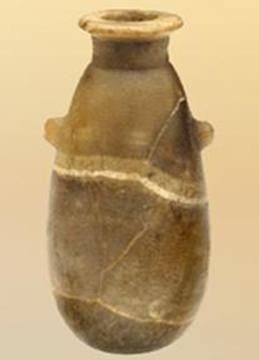Recall that Jesus is on the Mount of Olives having just concluded His discourse on the signs of His coming in judgment upon the Jewish nation for having rejected Him as their Messiah that caused Him to forsake the temple and predict its destruction. It is Tuesday of Passion Week, and He reiterates to His disciples that in two days He will be delivered up for crucifixion at the Passover, even as the Jewish leaders were plotting to seize Him by stealth and kill Him, but not at the festival for fear of the many people rioting who supported Jesus. What happened that forced their hand to accomplish God’s purposes exactly according to His plan that would have Jesus die on the Passover as the Lamb of God who takes away the sin of the world? See Mat 26:14. What was it that seems to have had a part, at least in the minds of the disciples, in instigating Judas to go to the chief priests and ask what they would give him to deliver up Jesus to them? See Mat 26:6-13, Mar 14:1-11, Joh 12:1-8. Why might the seeming waste of the precious anointing oil and talk of Jesus’ death and burial, along with the lack of movement towards the sort of kingdom they all had been expecting, have disillusioned Judas about the nature of the kingdom they were now coming to understand that Jesus had promised? How might that have perhaps influenced him to do what he could to “take it by force” (cf. Mat 11:12), perhaps by putting Jesus in a position where he supposed He would have to act, or perhaps by getting something he thought he deserved out of the time and efforts he had spent following and supporting Jesus’ ministry? Cf. Joh 12:6. Are we like that, or do we have faith to trust that God’s ways are best even when we suppose that they aren’t going our way and we aren’t getting what we think we deserve?
When did the anointing described in Mat 26:6-13 actually take place? See again Joh 12:1-8. How does understanding that the disciples supposed Judas’ betrayal was perhaps related to the extravagant “waste” of the precious anointing oil help us to understand why Matthew and Mark chose to include it here in their accounts? Notice in each of their accounts the bridge it forms between the plot to kill Jesus, but not during the festival, and Judas’ offer to betray Him. Notice also that the exact words and grammatical construction they use do not imply they are trying to relate a consecutive account of events, but are completely natural and what we would expect when understood this way.
On what other occasion did a similar event take place with which this one is often confused? See Luk 7:37-38. Where and when did that that event take place? See Luk 7:1,11,36 and note that that event took place in Galilee in the home of a Pharisee earlier in Jesus’ ministry. In what ways is the account in Luke similar that makes it easy to confuse? Should we assume because the owner of the home in each case was named Simon, or perfume is mentioned in each case, or the perfume was kept in an alabaster container, that they must be the same event? Besides Simon the Pharisee and Simon the Leper, how many other people are mentioned in the New Testament as being called Simon, that indicates how common the name was? See Mat 10:2,4, 13:55, 27:32, Joh 6:71, Act 8:9, 9:43. What was the origin of the name that made it so popular among the Jews? See Gen 29:33, and notice too that Simon Maccabaeus and his brother Judas were war heroes from the intertestamental period. What do we gather from Jesus’ words to Simon the Pharisee in Luk 7:44-46 about it not being uncommon to provide guests anointing oil / perfume as a measure of honor and respect? Cf. Psa 133:2, Pro 27:9, Song 1:3, Amo 6:6, Jer 25:10 LXX[1]. Notice also that just as perfume today is most commonly kept in a glass container to prevent any loss of the expensive commodity, in ancient times it was originally kept in a container of alabaster (a soft stone similar to marble or onyx that could be easily carved), so that alabastron, which is the term found in our text, became the name of a container of perfume or other oil, even if it was not made out of alabaster.
in a glass container to prevent any loss of the expensive commodity, in ancient times it was originally kept in a container of alabaster (a soft stone similar to marble or onyx that could be easily carved), so that alabastron, which is the term found in our text, became the name of a container of perfume or other oil, even if it was not made out of alabaster.
[1] LXE Jeremiah 25:10 And I will destroy from among them the voice of joy, and the voice of gladness, the voice of the bridegroom, and the voice of the bride, the scent of ointment, and the light of a candle.